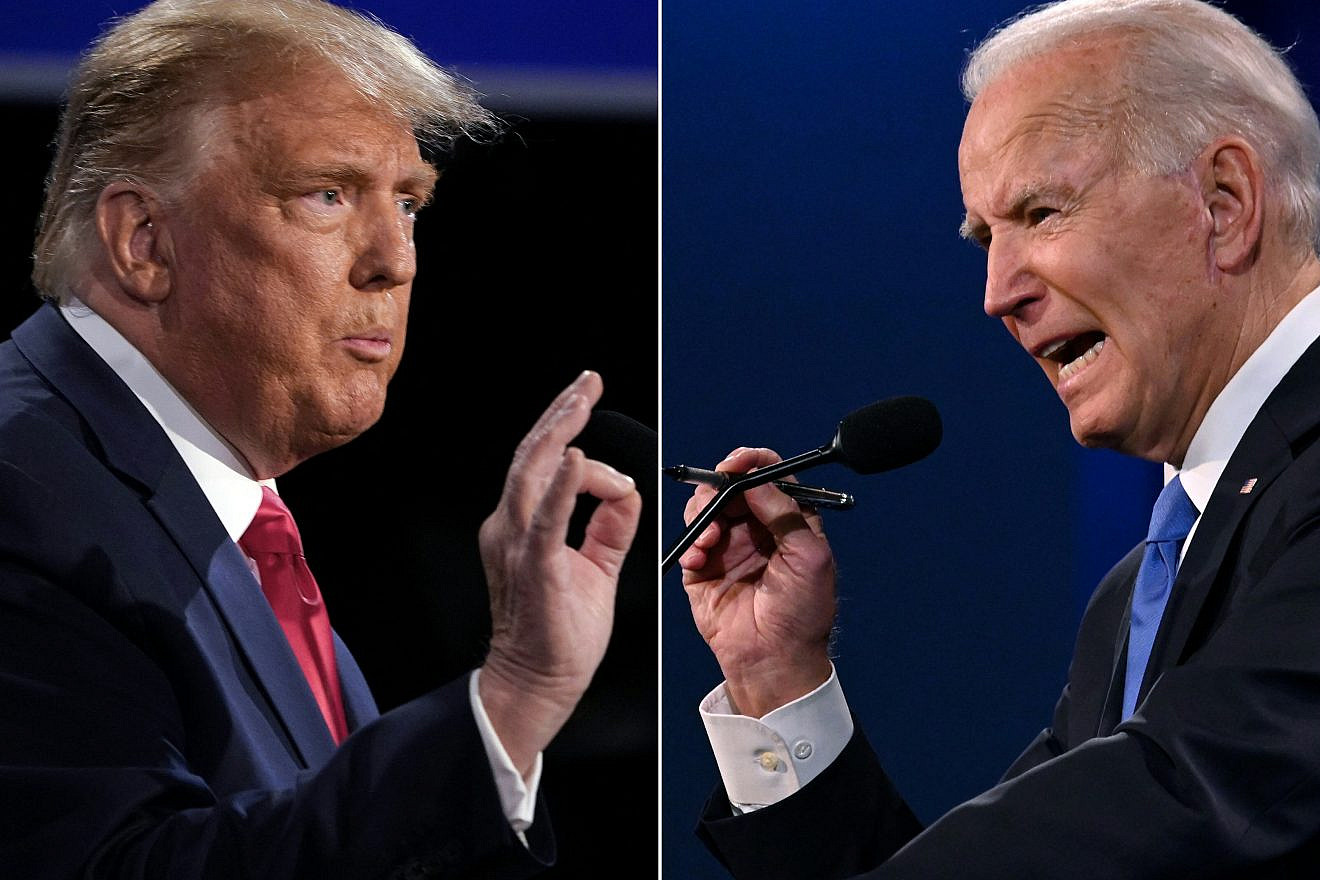Experts are divided on the degree to which the unique rules of Thursday night’s presidential debate in Atlanta will benefit either U.S. President Joe Biden or former President Donald Trump.
The candidate who is not speaking will have his microphone muted, and there will be no live audience (a reported strength of the former president’s), and no props or pre-written notes are allowed, CNN stated. The network’s Jake Tapper and Dana Bash are slated to moderate the 90-minute event with just two commercial breaks.
Biden and Trump also won’t be allowed to consult with staffers or advisers during the debate. “Candidates will be given a pen, a pad of paper and a bottle of water,” per CNN.
Experts told JNS that they expect the Middle East to figure prominently in the debate.
“I am confident that the Middle East will come up. Trump has a huge opportunity to contrast himself with Biden on the issues of Israel and Iran,” said Tevi Troy, a presidential historian and former deputy U.S. secretary of health and human services.
“Most Americans side with Israel. Biden has been trying to appease the pro-Hamas wing of his party by criticizing Israel, but such an approach is both fruitless and also risks alienating moderate voters that he will need,” Troy told JNS.
David May, research manager and a senior research analyst at the Foundation for Defense of Democracies, told JNS to “expect Trump to hammer Biden on his Middle East policy.”
“Hamas’s Oct. 7 massacre and its downwind effects leave Biden vulnerable,” May said. “Presidents receive credit and blame for major events during their tenure regardless of their direct involvement.”
With Israel facing a “looming war” with Hezbollah, the Houthis causing “mayhem” in the Red Sea and antisemitism on the rise in America, the Biden administration “has been lax in enforcing sanctions on Iran amid Tehran’s march to a nuclear weapon,” May said.
“Trump, meanwhile, can point to the United States leaving the Iran nuclear deal, recognition of Israeli sovereignty in the Golan Heights, the elimination of Qassem Soleimani, Iran’s top terrorist, and the Abraham Accords as his Middle East policy legacy,” May said.
“Biden will try to emphasize his support for Israel, particularly through supplying weapons, but this has been overshadowed by noticeable tensions between Washington and Jerusalem,” he added.
If Iran comes up during the debate, “we should expect Trump to note Iran’s advances on its nuclear program and contrast that crisis with his own strict sanctions, maximum pressure campaign,” Danielle Pletka, distinguished senior fellow in foreign and defense policy at the American Enterprise Institute, told JNS.
It’s hard to know what either Trump or Biden, “who now operates according to Dearborn rules,” will say on Israel, Pletka said.
“Trump is likely to comment on Biden’s slow rolling of military support to Israel, which is slowing down progress in the war on Hamas,” she told JNS. “Given the rules, which pundits believe advantage Biden because of Trump’s penchant for bombast, we could be surprised if Trump brings a disciplined game.”
At his best, Trump can out-debate Biden, according to Pletka.
“The real question is whether Trump will bring his best, and having set the bar so low for Biden—all he needs to do is not die on stage—can Trump really manage to make the case that he’s the right man this time around?” she added. “It’s a crap shoot for them both.”
Nathan Diament, executive director of the Orthodox Union Advocacy Center, told JNS that he anticipates that the moderators will ask the current and former presidents “about the new, worst surge in antisemitism ever in the United States.”
“We would like each of them not only to condemn it but to say what they will do concretely to respond and ensure those who perpetrate acts of antisemitism are held accountable,” Diament said.


























